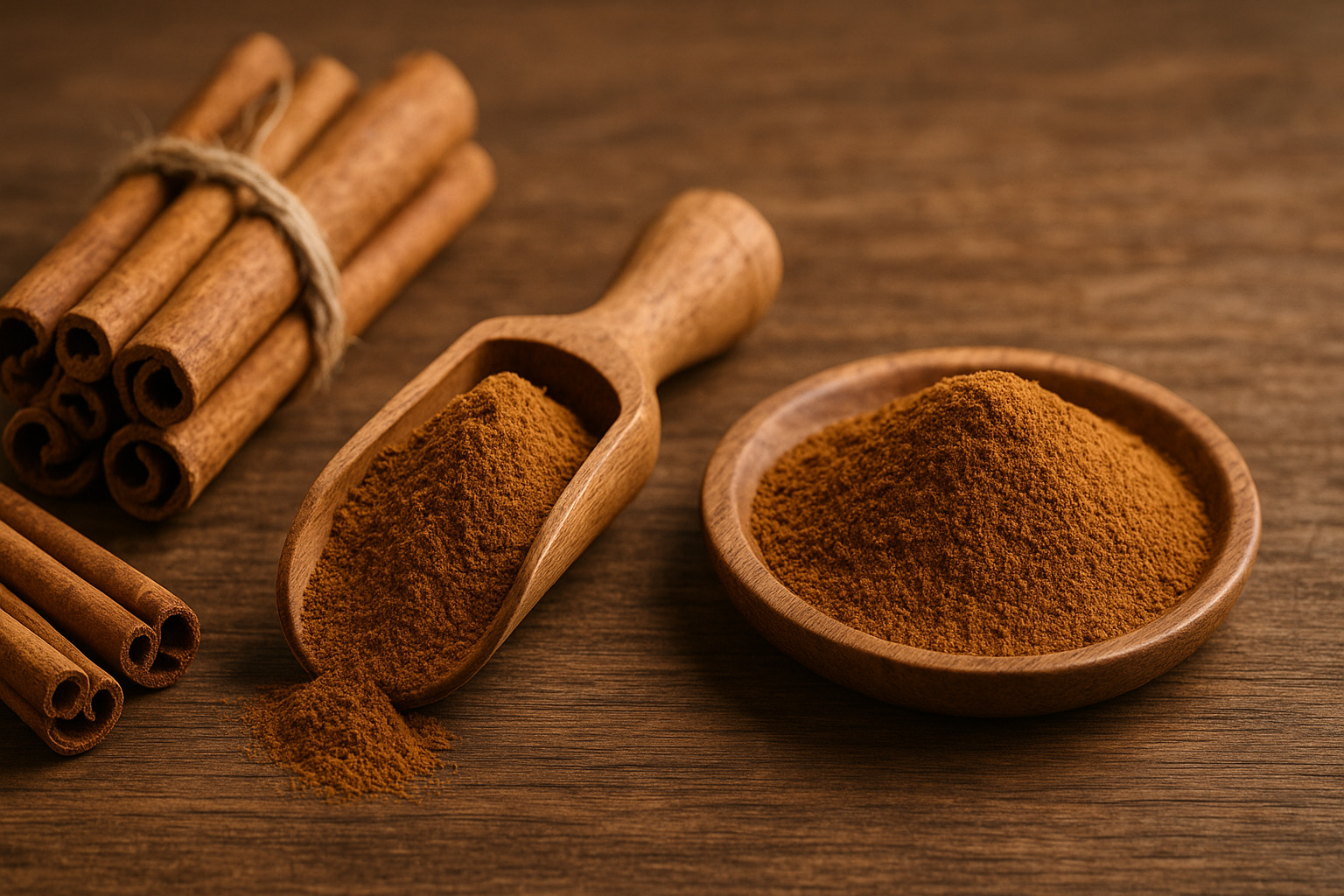Cinnamon offers flavor and potential health benefits, but consuming too much can lead to health issues. Knowing the safe daily amount helps you enjoy it without risking side effects. Here’s everything you need to know about how much cinnamon is safe to eat every day.
What Happens if You Eat Too Much Cinnamon?
Cinnamon, especially Cassia cinnamon, contains coumarin, a natural compound linked to liver damage when consumed in high amounts. Ceylon cinnamon (true cinnamon) has far less coumarin, making it safer for regular use.
Health authorities such as the European Food Safety Authority recommend a Tolerable Daily Intake (TDI) of 0.1 mg of coumarin per kilogram of body weight.
How Much Cinnamon Is Safe to Eat Daily?
Daily Coumarin Limits Based on Body Weight
- A 150‑lb (≈68 kg) adult should consume no more than 6–7 mg of coumarin per day.
- Cassia cinnamon can contain 6–18 mg of coumarin per teaspoon, meaning just ⅓ teaspoon may exceed safe levels for some individuals.
- Ceylon cinnamon contains less than 0.02 mg per teaspoon, making it safe for multiple teaspoons daily.
Safe Daily Cinnamon Dosage by Type
| Type of Cinnamon | Coumarin Content per Teaspoon | Safe Daily Amount (150‑lb adult) |
|---|---|---|
| Cassia cinnamon | 6–18 mg | Around ¼ teaspoon (0.5–1 g) |
| Ceylon cinnamon | <0.02 mg | Several teaspoons safely |
To calculate your personal limit: Body weight (kg) × 0.1 mg = max safe coumarin (mg/day).
Health Risks of Eating Too Much Cinnamon
1. Liver Damage
High coumarin intake can damage liver cells, especially in people with existing liver conditions.
2. Mouth and Throat Irritation
Cinnamaldehyde, present in high amounts in cinnamon, can trigger mouth sores or allergic reactions.
3. Low Blood Sugar (Hypoglycemia)
Cinnamon can improve insulin sensitivity, but too much may dangerously lower blood sugar.
4. Drug Interactions
Cinnamon may interact with blood thinners, diabetes medications, and liver-metabolized drugs, increasing the risk of side effects.
5. Possible Cancer Risk in Animals
Studies on rodents link high coumarin intake to tumors, though human risk remains unclear.
6. Breathing Problems
Inhaling dry cinnamon powder can irritate the lungs and cause coughing fits.
How to Safely Include Cinnamon in Your Diet
- Choose Ceylon cinnamon for daily use due to its low coumarin levels.
- Limit Cassia cinnamon to no more than ¼ teaspoon daily if consumed regularly.
- Use cinnamon sticks in tea or stews instead of large amounts of powdered Cassia.
- Rotate with other spices like nutmeg or cardamom to reduce coumarin exposure.
- Consult your doctor if you have liver problems or take medications.
- Watch for early signs of liver stress: fatigue, nausea, dark urine, or jaundice.
Healthy Serving Suggestions
- Add ½–1 teaspoon of Ceylon cinnamon to smoothies, oatmeal, or coffee.
- Simmer a cinnamon stick in soups or tea for flavor without excess coumarin.
- Limit cinnamon oil to just a drop or two per day due to its high concentration.
Who Should Be Extra Careful?
- Individuals with liver conditions or those taking hepatotoxic drugs.
- People on blood-thinning or diabetes medications.
- Pregnant or breastfeeding women should stick to culinary amounts and avoid supplements.
- Avoid high-dose cinnamon supplements, which often use Cassia and can exceed safe levels quickly.
Key Takeaways
- Cassia cinnamon: limit to ¼ teaspoon daily for adults.
- Ceylon cinnamon: safe for regular daily use due to low coumarin.
- Monitor for side effects if consuming daily or taking medications.
Frequently Asked Questions
How much cinnamon is safe to eat daily?
Most adults can safely consume about ¼ teaspoon of Cassia cinnamon per day. Ceylon cinnamon is much safer and can be eaten in larger amounts due to its low coumarin levels.
What happens if you eat too much cinnamon?
Excess cinnamon can lead to liver damage, low blood sugar, mouth irritation, and drug interactions, especially with Cassia cinnamon.
Which is safer: Cassia or Ceylon cinnamon?
Ceylon cinnamon is safer for regular use because it contains almost no coumarin. Cassia cinnamon should be limited to occasional small servings.
Can cinnamon interact with medications?
Yes. Cinnamon may interact with blood thinners, diabetes drugs, and liver-metabolized medications, increasing the risk of side effects.
Is it safe to take cinnamon supplements daily?
Not always. Many supplements use Cassia cinnamon, which can exceed safe coumarin levels quickly. Stick to culinary use unless advised by a healthcare professional.
Disclaimer: The information in this article is for general knowledge only and should not replace professional medical advice. If you have health concerns or take medication, talk to your doctor before making changes to your diet.


